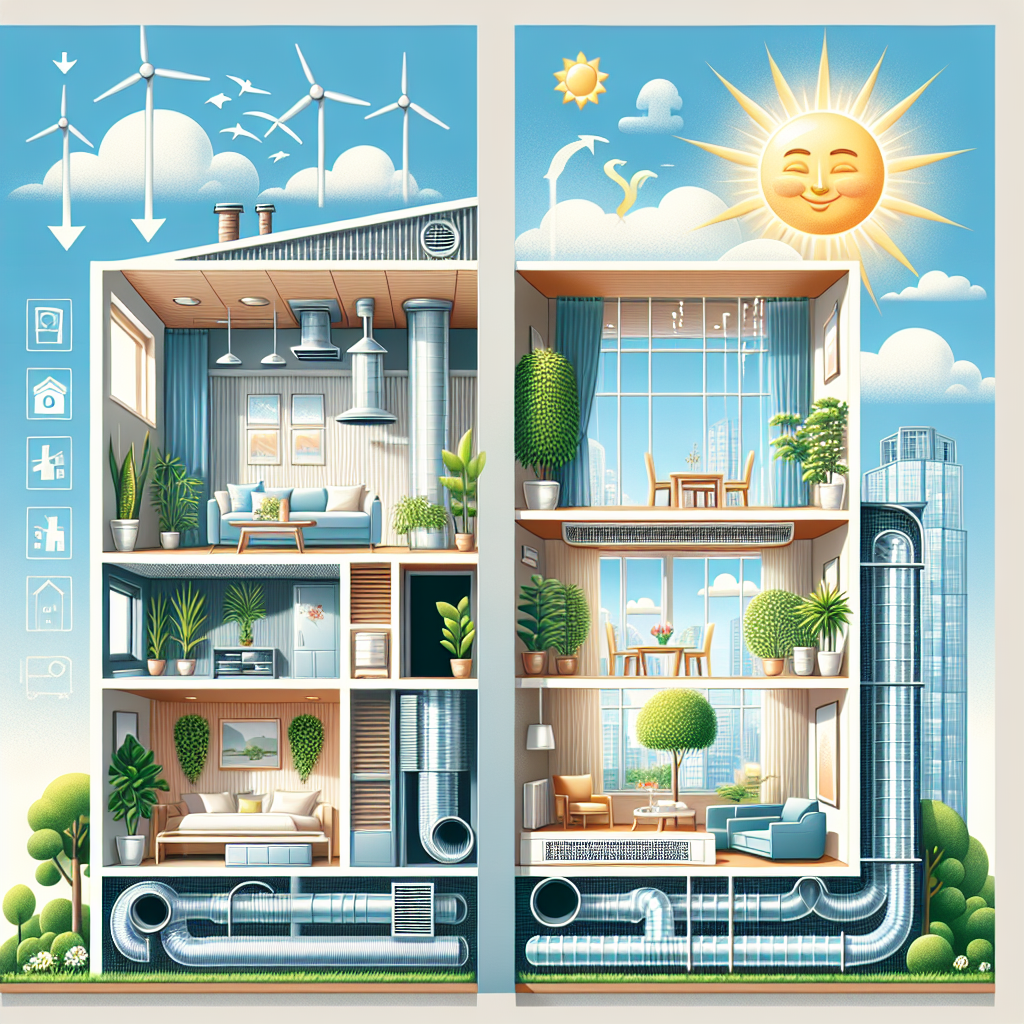The Importance of Proper Ventilation in Homes and Buildings
Proper ventilation is crucial for maintaining a healthy and comfortable indoor environment in homes and buildings. Good ventilation helps remove indoor air pollutants, control humidity levels, and prevent the growth of mold and mildew. It also helps to reduce the risk of respiratory problems and other health issues associated with poor indoor air quality.
One of the key benefits of proper ventilation is the removal of indoor air pollutants. Indoor air pollutants can come from a variety of sources, including cooking, cleaning products, tobacco smoke, and building materials. Without adequate ventilation, these pollutants can build up in the air and lead to health problems such as asthma, allergies, and respiratory infections. Proper ventilation helps to dilute and remove these pollutants, improving indoor air quality and creating a healthier living environment.
Controlling humidity levels is another important function of ventilation. High humidity levels can promote the growth of mold and mildew, which can cause respiratory problems and exacerbate allergies. Proper ventilation helps to remove excess moisture from the air, preventing the buildup of mold and reducing the risk of related health issues. In addition, maintaining proper humidity levels can help to make indoor spaces more comfortable and prevent damage to building materials and furnishings.
Proper ventilation is also important for maintaining the overall structural integrity of buildings. Excess moisture in the air can lead to condensation on windows and walls, which can cause damage to paint, wallpaper, and other surfaces. It can also lead to the deterioration of building materials, such as wood and drywall. Proper ventilation helps to prevent these issues by removing excess moisture from the air and promoting proper air circulation throughout the building.
In addition to these health and structural benefits, proper ventilation can also help to improve energy efficiency in homes and buildings. By allowing for the proper exchange of indoor and outdoor air, ventilation can help to regulate indoor temperatures and reduce the need for heating and cooling systems. This can lead to lower energy bills and a more sustainable living or working environment.
In conclusion, proper ventilation is essential for maintaining a healthy, comfortable, and safe indoor environment in homes and buildings. It helps to remove indoor air pollutants, control humidity levels, prevent the growth of mold and mildew, and improve energy efficiency. By ensuring that your home or building has adequate ventilation, you can create a space that is not only pleasant to live or work in, but also promotes the health and well-being of its occupants.


